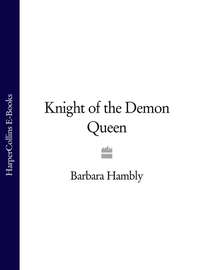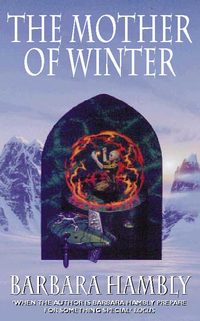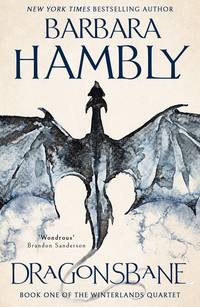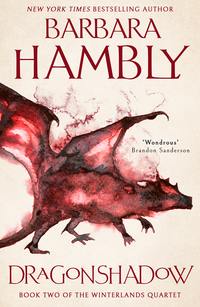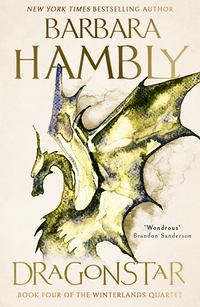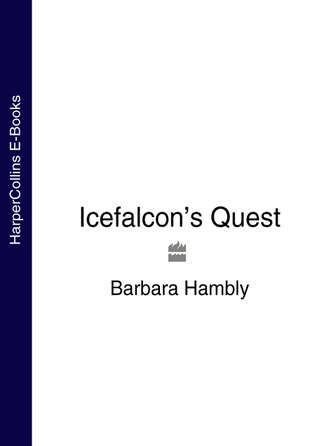
Полная версия
Icefalcon’s Quest
“But it is by no means unheard of. As a collector and collator of old manuscripts myself, I’ve found mention of it only once, in the Yellow Book of Harilómne.”
“Harilómne?” Brother Wend straightened up, dark eyes growing wide. “Harilómne the Heretic? He was a mage of great power, who sought out and studied all records of the arts of the Times Before, in the days of Otoras Blackcheeks, my Lady,” he explained, turning to Minalde. “It was said he knew more about those lost arts than any man living, though no one knows how he found it out. No one has ever found his library …”
“And just as well,” said the Bishop Maia. “Just because a thing was wrought by the mages of those times does not mean that it was wholesome, or worthy of being found. The Times Before were years of great evil as well as great knowledge. Some of the knowledge Harilómne uncovered was used to great ill, as anyone will tell you, my Lady.”
“But three of his books were supposed to be at Gae,” put in Rudy. “That’s what that merchant guy last month told Ingold. That he’d seen them in the cellar of a wrecked villa there. That’s why Ingold took off the way he did.”
“And well he should,” said Linok. “All knowledge, all magic, is precious in these times.” He made a gesture, then, of stroking his ragged beard, and something in his movement – the way his hand came up, wrist leading like an actor’s – snagged at the Icefalcon’s mind. An impression, gone immediately, that he knew this man. Had seen him somewhere before.
But the round face, the wide-set eyes, and the snub nose were not familiar.
Someone who looked like him? A kinsman?
But he knew as soon as he phrased the question that it wasn’t that.
Linok went on, “The single reference in the Yellow Book speaks of a girl in the reign of Amir the Lesser who was ‘possessed of a spirit of her ancestors,’ who apparently spoke languages unknown to any in the world. She could identify and explain an ‘apparatus’ ‘said to have stood in the vaults beneath the Cathedral of Prandhays since the founding of the city.’ What this apparatus was the book did not say, and the apparatus itself is now long gone, but it was said that the thing produced a great light, and while the light shone none could enter or leave the Cathedral, nor certain areas of its grounds.”
“A force field?” Rudy looked across at Gil – the word he used was unfamiliar, in the tongue of their own world that neither spoke much anymore. “I’ll be buggered. You ever hear Ingold mention that?”
She shook her head.
“And was it an apparatus,” asked Minalde, folding small slim hands in her embroidered lap, “that you came to the Vale of Renweth to seek, Hethya?”
The woman hesitated for a long time, her eyes seeking Linok’s. The old man nodded.
“I think we can trust these good people, my child.”
One could have heard a snowflake fall in that lamp-lit golden room.
“She – Oale Niu – says there were caves or something in the cliffs on the western side of the valley.” Hethya brought the words out hesitantly, as if dredging them from deep within her mind. “She says she and some other people, wizards I think, hid up there from the Dark Ones. They walled up things, weapons and … and other things I’m not understanding, to hide them there from enemies, after they got the Keep built.”
The whole room was an indrawn breath. Hope, wanting, flashed between Rudy’s eyes and Minalde’s, palpable as the leap of summer lightning from cloud to cloud.
Lord Ankres said, “But we have all been to those caves, my Lady Queen.” He leaned forward, narrow hands resting on his knees. “Lord Ingold himself has gone carefully over them and found nothing but marks and scratches on the floor.”
Hethya looked puzzled, biting her lip.
Rudy asked her, “Whereabouts are these caves? Down near the old road?”
She shook her head immediately. “No, those were the ones the people stayed in, where there was the water. These were up higher, and farther on, I think. I’d know the place if I was to see it again.”
Rudy looked down at Tir, sitting rapt at Minalde’s feet. “Any of this sound familiar to you, Ace?”
The boy shook his head, eyes shining. “What kind of things?” he wanted to know. “Machines?” For the past two winters he had been enthralled by the mazes of levers and pulleys, belts and steam turbines, that Ingold was constructing in his laboratories in the heart of the Keep crypts next to the hydroponics gardens that fed the population. The few fragments of ancient machines that had been found provided only tantalizing scraps of information, hints and clues and the tiniest seeds of speculation, which, the Icefalcon knew, drove Ingold and Gil insane.
The Icefalcon himself had little opinion of machines. They could not be made to work and took up a deal of space, and, upon two or three occasions, trials of their virtues had resulted in nearly killing everyone in the room. Gil and Rudy had both attempted to explain to him why it was necessary that such machines as Gil saw in the record crystals from the Times Before should be made to work again, but the Icefalcon still distrusted them.
It was said among his people that it took a brave man to befriend a Wise Man, and after eleven years’ friendship with Ingold Inglorion, greatest of the wizards of the West, the Icefalcon had concluded that one had to be slightly mad as well.
Hethya was still speaking, telling Tir and Rudy and the Lady Alde about machines that would draw water from deep in the earth or generate heat and operate the pumps that circulated air and water through the unseen black ducts and pipes of the Keep. Though Maia was shaking his head in disapproval, she spoke of apparatus that would melt snow and cause plants to fruit and put forth crops twice and sometimes thrice in a year – the sort of things the more foolish of the people of the Real World west of the mountains attributed to their Ancestors, as if anyone’s Ancestors would be interested in such matters. The Talking Stars People had more sense.
“I know not whether these things will remain,” Hethya said, the Felwoods brogue dissolving again, the antique inflection returning as the pitch of the voice itself deepened and slowed. “We hid them deep, for the world in those days was full of foolish men and the acts of a few evil wizards had brought down the persecution of the Church on them all. A world of time has passed over them, and time contains many things. We thought, me Uncle Linok and meself …” She was all Felwoods again. “We thought to lay hold of some of these things, to buy ourselves at least a place to dwell, now the eastern lands are all warfare and bandits and death.”
Her nostrils flared a little, and the hazel eyes darkened again, and her fingers clenched the faded gilding of her chair arm.
“You need not trouble yourselves about the purchase of refuge.” Alde rose from her own chair and held out her hand, her full garnet oversleeve falling straight. Against Hethya’s height and strength she had a fragile look, like the chair she had sat in, the delicate workmanship of a world fast slipping away. “Whatever you seek, be sure that you will have our help. Whatever you find, be sure that it will not be taken from you so long as your use of it be honest. That I pledge you.”
Hethya curtsied deep with her borrowed skirts and kissed the Lady’s outstretched hand. Linok carefully unwrapped himself from his many shawls and made his bow, an elaborate Court obeisance that once again tripped something in the Icefalcon’s mind.
But then, it was the sort of silliness that civilized people did, and he had lived among them for four years before the coming of the Dark Ones. There were many in the Keep – not just the Keep Lords, either – who scrupulously maintained the old forms, and it was not unreasonable to suppose that such a one might have a niece with a roving eye and a Felwoods turn to her tongue.
It was the mark of civilized people to make such allowances and not live with one’s hand forever on one’s sword-belt. Commander Janus of the Guards, and the Lady Minalde, and others over the years, had told the Icefalcon repeatedly that every snapped twig did not necessarily presage the swift onset of bloody disaster.
But the reflection that he was right, and they wrong, was of little consolation to the Icefalcon in the face of what was to come.
Chapter 2
“If you mean, do I think she was faking,” said Gil-Shalos half an hour later, walking along the broad Royal Way at the Icefalcon’s side with her gloved hands stuck in her sword-sash, “the answer is yes.”
At midday the mazes of the Keep were sparsely populated, especially in spring. The rasp of files and saws, characteristic noises that rose and faded with the turnings of the fortress’ tangled hallways, were stilled as the men and women who labored all winter in their dim-lit cells joined hunting parties or optimistically cultivated what arable land there was – anything to add to the Keep’s slim stores of food and, especially, clothing. With the destruction of the entire sheep herd in the Summerless Year, the Icefalcon had immediately reverted to the wearing of leather and furs, dyed black as the clothing of the Guards of Gae was always black; others were following suit.
Uneasy torchlight flung shadows over the black stone walls but couldn’t pierce the gloom collected under the high ceiling vaults. Here and there vermillion slits of poor-quality-oil light marked the rough louvers or curtains that closed off doors of the dwelling cells. Raised largely in the open, the Icefalcon had had a difficult time getting used to living under a roof in his years at Gae. The Keep was like dwelling forever in a cave.
A very safe cave, of course. But a cave, nonetheless.
But he had played in caves as a child, up in the Night River Country. He had memorized their most intricate twists and turnings, their tiniest holes and pass-throughs, in order to ambush his playmates, even as the children here learned to run the mazes without lights in the course of their games. He still practiced several times a week, finding his way about the back reaches of the Keep blindfolded. Following his example, as in many other things, Gil did this as well.
“It is not exactly what I mean,” the Icefalcon said, as they turned left and descended the Royal Stair. Many people had trouble keeping abreast of the Icefalcon’s long-legged stride, but Gil was fast. “But tell me why you think this woman lies about the Ancestor who dwells within her head.”
“There’s too much of a difference between her uncle’s class and hers.”
“I thought of that. It is not inconceivable, o my sister, that the man’s sister could have married beneath him.”
“Maybe.” She didn’t sound happy about it. She understood watchfulness as few civilized people did, the awareness of patterns and when a single trace or scat or spoor looked not as it should. “But anybody can make up gibberish and say it’s an unknown language. Religious fakers in my world have been using that one for centuries. And logic would tell anybody that people had to live somewhere while the Keeps were being built. If you think about it, it would have to be in caves.”
The Icefalcon nodded. It was, he reflected, part of a storyteller’s art, and he’d frequently teased Gil about the fascination all civilized people had for stories that sounded true but weren’t.
They passed under clotheslines draped with garments hung between the Royal Stair’s spacious arches to take advantage of the up-draft of warm air and on into the Aisle. Hundreds of yards long and over a hundred wide, its ceiling vanished high in darkness above them. The obsidian walls, like those of the densely twisted corridors, glittered dimly with squares of scattered lamplight; doors, and windows. Multifingered streams trickled dark and clear as winter midnight under railless stone bridges that cut the black expanses of floor. At the Aisle’s far end, pale daylight leaked through the Doors, the single entrance to the whole of the Keep’s great inner dark: two pairs of massive metal portals separated by the twenty- or thirty-foot thickness of the outer wall itself.
Dare’s Keep. The final stronghold. Unbreachable by the Dark that had shattered the world.
“Both she and that uncle of hers have been eating pretty good,” said Gil, and twisted a tendril of her dark hair around one of the sharpened sticks that held it out of the way. “And there’s a limit to what you can pack on a donkey. But mostly what tips me off is that she thinks – or she says this Oale Niu bird says – that the Keep is powered by machinery. She thinks that the heart of the Keep is a machine. And that would be true for Keeps like Prandhays and the Black Rock Keep in Gettlesand. Keeps where a wizard, a mage, didn’t sacrifice himself or herself to enter into the heart of the Keep as a source of magic to keep it going. If Oale Niu really were a mage from the Times Before, she’d know about that. She’d know about Brycothis.”
She spoke softly the name of the wizard who had sacrificed herself: Ancestor in a way, the Icefalcon thought, of all those who lived here. When first he had been told the secret of the Keep, known only to a handful, he wondered why he had not guessed it already.
There was life here in the lamp-sprinkled midnight among the catwalks overhead, life in the flow of the moonless water along the streams of the floor, life in the breathing of the air. The life of the Keep, like the spirits that dwelled in rocks and trees, in the ocean and in each of the thousand thousand stars. It was the only time he had heard of a human being transforming herself into a spirit, the ki of a place, but it did not surprise him.
The spirit was the mage Brycothis, who had abandoned her body and been absorbed into the magic walls to draw power from the earth and channel it to the uses of her people within those walls forever.
Sometimes he wondered that everyone in the Keep did not guess.
At other times, after he had been dealing with these civilized people for a while – mud – diggers, the Talking Stars People called them, these people who had lived so long so fat and easily, with their wheat fields and their furniture and their clothing that tied up one’s sword-hand-it did not surprise him at all. Civilized people would have trouble guessing what was amiss should a uintatherium take up residence in their parlors.
“But why here?” he asked. “Why make up such a tale?”
“Because we’ve got food here.” Gil shrugged. “And we’ve got the only setup that guarantees production of food. Since those bandits took over Prandhays Keep last summer, we’re just about the last stronghold for the length of the Great Brown River, from Penambra to the Ice in the North, and the most productive. You know how many bandits these days are from the Alketch, soldiers displaced by fighting there since the old Emperor’s daughter gathered troops and threw out the general who thought marrying her against her will would be a good way to become Emperor himself, the more fool he.”
“They are fools,” said the Icefalcon dismissively, “the Alketch.” The original owner of the finger bones he wore in his braids had been a prince of the Alketch.
A door in the Aisle’s south wall, and a dark vestibule, led them into the watchroom of the Guards. The triple-sized cell was bright with glowstones – ancient crystal polyhedrons that shed a kind of stored magelight – and redolent of the warm reek of potatoes, venison stew, and sweaty wool. Sergeant Seya was playing pitnak with one of the rookies – Gil glanced at the sergeant’s tiles and shook her head.
“If our girl Hethya was passing herself off as some kind of ancient wizard to gain status wherever she lived,” she continued, turning back to the Icefalcon, “Alketch bandits’ religious scruples might not have stretched to keeping her around, especially once they found out she couldn’t come across with anything useful. You know what the Church in the South does to wizards. My bet is she and Uncle Linok had to get out of there fast.”
“So they stole a donkey,” said the Icefalcon, “and came here … For what purpose? To hoax us?”
“At a guess. To buy status. Maybe they thought we wouldn’t let them in. Everyone loves a good story.”
“Civilized people do,” retorted the Icefalcon, who wasn’t about to admit to a weakness of that kind. “They could make a good living,” he added thoughtfully, “just selling the donkey.” Knowing some of the speculators who operated in the Keep, Linok had probably already been offered the little animal’s weight in gold, which was cheap these days, since it would neither hold an edge nor stand up to the heat of a cook fire. It was just possible that someone would make an attempt to steal the creature, though with so few animals in the Keep such a theft would be difficult to hide.
It occurred to him that he could have killed both the old man and the woman and sold the donkey himself to the highest bidder, always supposing anyone in the Keep possessed anything he wanted that badly.
None of the Talking Stars People were particularly interested in things they couldn’t carry two hundred miles on foot. The habits of the Icefalcon’s upbringing died hard.
Gnift the Swordmaster came in, calling together his afternoon practice, and now that her son Mithrys was able to walk – and learning to talk, may their Ancestors help them all – Gil had returned to training regularly with the Guards and taking her turn on the watches. While she and the others were stripping to their undertunics and wrapping their hands and wrists, the Icefalcon again put on the soft jerkin of black-dyed wolf-hide he wore on patrol, marked with the white quatrefoil emblem of the Guards of Gae, and pulled on over it a heavier vest, and his gloves. Though it was April, in these high valleys the wind blew cold, colder now every year. There was still chance of snow.
Janus, the stocky, red-haired Commander, called out, “You’re not on now, you know,” and the Icefalcon shrugged.
“I’m just going up the Vale to see about those bandits.”
“There can’t be a lot of them.” He straightened up from lacing his boots. “The watchers at the Tall Gates never saw them. Neither have any of the patrols.”
“Even so.” He gathered up his bow, a blanket, a quiver of arrows, and then, because he had been raised among the Talking Stars People, added to the sword and water bottle at his belt a leather wallet of dried meat and flatbread, enough for a hard day’s walking, and some dried fruit. Like most of the Guards he carried a firepouch at his belt, the whole cured hide of a woodchuck lined with horn and clay, in which was packed a smolder of rotted yellow birch that would burn for a day.
There were few enough guards, and Renweth Vale stretched eighteen miles from the sapphire wall of the St. Prathhes’ Glacier down to the spruce forest at its lower end. A fairly large force might hide in the pinewoods or the rock caves above, and it was not impossible they could have come in over the ice-crowned spine of the peaks, rather than the eastward pass.
It would be as well to know where they were and what they were up to. The regular patrol had departed only an hour before – the Icefalcon briefly considered rounding up a band to go with him, then dismissed the thought. On simple reconnaissance, he would do better alone. Besides, he thought – the reasoning of a White Raider, Ingold would tell him, but he was a White Raider, and the reasoning was logical – bandits might have weapons and horses that could be appropriated.
Instinct made him seek the trees as quickly as he could. From the stones called the Four Ladies at the glacier’s foot one could see all the clear land of the Vale. He worked his way carefully under cover of the woods up to the round meadow where Linok and Hethya had camped. He did not seriously think that anyone was watching from the Four Ladies, but there was no point in giving anyone a hint of his movements or intentions.
He had not seen tracks of bandits yesterday, he thought, nor the day before. The watchers on the Tall Gates that guarded the lower pass to the east had not sighted them, either.
Odd.
From the edge of the trees he scanned the pale sky northward, orienting himself. His upbringing in the Real World had taught him to learn every facet of his surroundings, tree by tree, gully by gully, mudflat, spring, and stone. He knew Renweth Vale as well as he knew the ranges of his childhood, the Haunted Mountains and the Night River Country. Had the sky-shadowing devil-birds of legend carried him off and set him down anywhere in the range of the Talking Stars People, he would have been able to determine where he was, where the nearest cover lay, where to find water and in what direction to walk to come to the steadings and horse herds of his people were it winter, or their summer hunting camps wherever they might be, depending on the rains and the grass.
Therefore he knew exactly where the lightning-scarred elm tree and its three sisters lay.
And above them, there were no carrion birds.
Scrupulous bandits? In his experience bandits didn’t even bury their camp garbage, let alone their dead.
When he wanted to, the Icefalcon could travel very swiftly, but the terrain here was rough, cut with streams and dotted with pale boulders among the trunks of pine and fir. It took him over an hour to reach the place, and when he did the sun was barely a hand span above the marble-white knife of the Great Snowy Mountains in the West.
The bandit still lay at the meadow’s edge, arms flung wide, head twisted over to the side. Both face and head had been shaved a little less than a week before, and though the man’s face was young, the beard and hair stubble were white, a common color among the Black Alketch. No bird had torn his eyes or his belly, no fox chewed the soft parts of his face. Nothing, as far as the Icefalcon could see, had invaded the gaping flesh of the severed throat or begun to eat at the corpse.
It had simply rotted where it lay.
In four hours?
He knelt beside it, pulled off his glove to touch the cheek. Liquefying flesh had already begun to drip away, showing the pale jawbone and teeth.
Plague?
Not a pleasant thought. Particularly not with Ingold a week’s journey off in Gae seeking Harilómne the Heretic’s books. This man had seemed healthy enough to try to rape Hethya, if that had indeed been his intent.
He pulled off the man’s glove, and most of the hand’s flesh came with it. The odor alone told him that all was not as it should be. The wars with the other peoples of the northern plains, the torture sacrifices by which his people periodically communicated with the Ancestors, the hunts of mammoth and dire wolf and yak, would have been enough to teach him the stench of the dead, without the Time of the Dark when corpses lay like windfall plums in the streets.
This stink was only vaguely similar, not like human flesh at all.
He sat back on his heels. Birds were beginning to cry their territories before settling in for the night. A squirrel ran up a tree.
The bandits had gone.
The sun slipped behind the white horns of the glaciers that shawled Anthir, northernmost of the three peaks that guarded Sarda Pass. Blue shadow poured east to drown the Vale, though light still filled the sky. The Icefalcon rose and traced the bandit’s prints back into the trees. Here, where the yellow pine-straw covered the ground, there was no good surface for tracks, a situation not helped by the fact that the bandit had not worn boots. Like the poorest beggars in Gae before the Dark Ones came, he had wrapped his feet in strips of hide. Still, where the man’s marks crossed one of the dozen meltwater streams, the Icefalcon found in the mud of the water’s verge the tracks of three others.
All four had stood there together, not long before the one bandit had gone to meet Hethya, Linok, and his destiny in the clearing. The other men had gone southwest.
The Icefalcon frowned. The light was sufficiently dim that he had to crouch for a closer look.
There was no mistaking it. All four men were the same height, judging by the length of their strides, and all four exactly the same weight.


